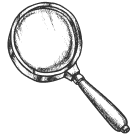
Narrative of the surveying voyages of His Majesty's ships Adventure and Beagle, between the years 1826 and 1836,
describing their examination of the southern shores of South America, and the Beagle's circumnavigation of the globe.
London, Henry Colburn, 1839
From the library of Charles Joseph LaTrobe, Superintendent of the Port Phillip District of New South Wales from 1839 to 1851, and from 1st July 1851 (until his departure three years later) the first Lieutenant-Governor of the Colony of Victoria; with his distinctive signature to all three volumes. An evangelical Christian (his father was a leader of the Moravian Church), LaTrobe spent fifteen years in the Australian colonies, leaving in 1854 a disillusioned and dispirited man. His time in office coincided with a period of tremendous expansion, with major infrastructure projects (roads and sanitation being a priority) however much of central Melbourne's green landscape can be put down to LaTrobe's foresight in preserving this land as open space.
On his arrival in Port Phillip LaTrobe's first speech put him at odds with the settlers of the District. These pioneers were looking to better their lot, expecting grants of land which would lead to the dispossession of the aboriginal peoples, yet LaTrobe spoke of different priorities: 'It is not by individual aggrandisement, by the possession of numerous flocks or herds, or by costly acres, that the people shall secure for the country enduring prosperity and happiness, but by the acquisition and maintenance of sound religious and moral institutions without which no country can become truly great'.
This clash of ideas was highlighted by Darwin in his Journal of The Voyages of HMS Beagle, published a few months before LaTrobe made his speech. In it Darwin observed that in 'the wide extent of the Americas, Polynesia, the Cape of Good Hope, and Australia' the native populations were being suppressed. 'The varieties of man', he noted, 'seem to act on each other in the same way as different species of animals – the stronger always extirpating the weaker.' This theory of the survival of the fittest became the justification for many colonists in the removal of indigenous peoples from their native land.
Darwin was given the third volume …The Voyages of HMS Beagle, writing 'I am to have the third volume, in which I intend giving a kind of journal of a naturalist, not following however always the order of time, but rather the order of position…' The first volume contains King's account of the expedition in the Adventure made between 1826 and 1830, which surveyed the coasts of Patagonia and Tierra del Fuego; and the second (and its appendix volume) describes the narrative of the Beagle's second voyage under Capt. Fitzroy made between 1831 and 1836 to South America, the Galapagos Islands, Tahiti, New Zealand, Australia, and other islands and countries.
'The five years of the voyage were the most important event in Darwin's intellectual life and in the history of biological science. Darwin sailed with no formal scientific training. He returned a hard-headed man of science, knowing the importance of evidence, almost convinced that species had not always been as they were since the creation but had undergone change... The experiences of his five years... and what they led to, built up into a process of epoch-making importance in the history of thought' (DSB).
First edition, early issue, 3 vols in 4, 8vo, ownership signature to half-title vol. I, title vol. II, half-title vol. III; 9 folding engraved maps by J. Gardner and J. & C. Walker; 47 etched plates after P. King, A. Earle, C. Martens, R. Fitzroy and others, original blue blindstamped cloth gilt, glazed yellow endpapers, vols I-III neatly recased preserving majority of original spines, inner hinges of vols I-III neatly strengthened. This set with the following early issue points: the half-title to vol. III does not contain the initials F.R.S. after Darwin's name thus denoting an early printing of the preliminaries prior to Darwin becoming a Fellow of the Royal Society on 24th January 1839, all spines imprinted Colburn / London rather than London / Colburn, each volume bears the author's name, lacking from later issues, this set without advertisements as sometimes and as noted by Freeman, light foxing and stains to frontispiece and plates vol. II, overall a good clean set.
Freeman 11; Hill 1, pp104-105; Norman 584; Sabin 37826.
Provenance
Delivery
We offer secure and express delivery on all local and international orders of rare books, maps and prints placed through this website.


























